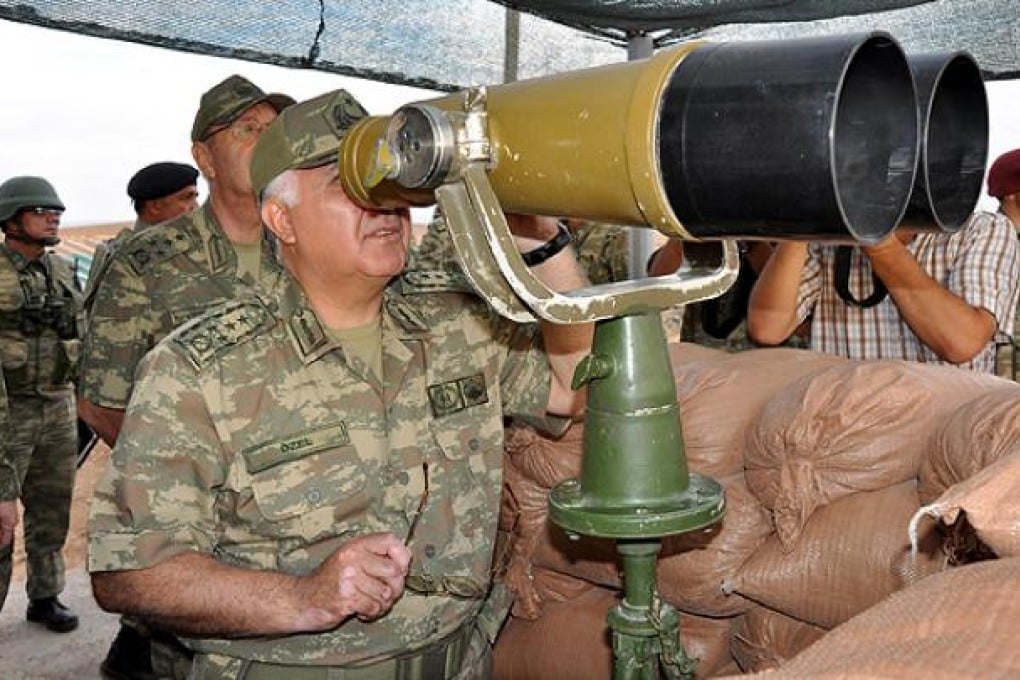Turkey warns of 'greater force' if further Syria shelling
Turkey’s military will respond with greater force if shelling from Syria continues to hit its territory, as clashes between the Syrian army and rebels intensified along the border.

Turkey’s military will respond with greater force if shelling from Syria continues to hit its territory, its chief of staff said on Wednesday, as clashes between the Syrian army and rebels intensified along the border.
Several mortar bombs landed outside the Syrian border town of Azmarin early on Wednesday and heavy machinegun fire could be heard from the Turkish side. Plumes of smoke rose into the sky and cries of “God is greatest” rang out between the bursts of gunfire, a Reuters witness said.
Turkey’s armed forces have bolstered their presence along the 900-kilometre-long border and have been responding in kind over the past week to gunfire and shelling coming across from northern Syria, where President Bashar al-Assad’s forces have been battling rebels who control swathes of territory.
“We responded but if it continues we will respond with greater force,” state television TRT quoted Turkey’s Chief of Staff, General Necdet Ozel, as saying.
Nato Secretary-General Anders Fogh Rasmussen said on Tuesday the 28-member military alliance had plans in place to defend Turkey. He gave no further details, but a senior US defence official said Nato would likely react if Turkey made a request for assistance.
It is not clear whether the shells that have hit Turkish territory were aimed to strike there or were due to Syrian troops overshooting as they attacked rebel positions.
Scores of Syrian civilians, many of them women with screaming children clinging to their necks, crossed a narrow river marking the border with Turkey as they fled the fighting in Azmarin and surrounding villages.